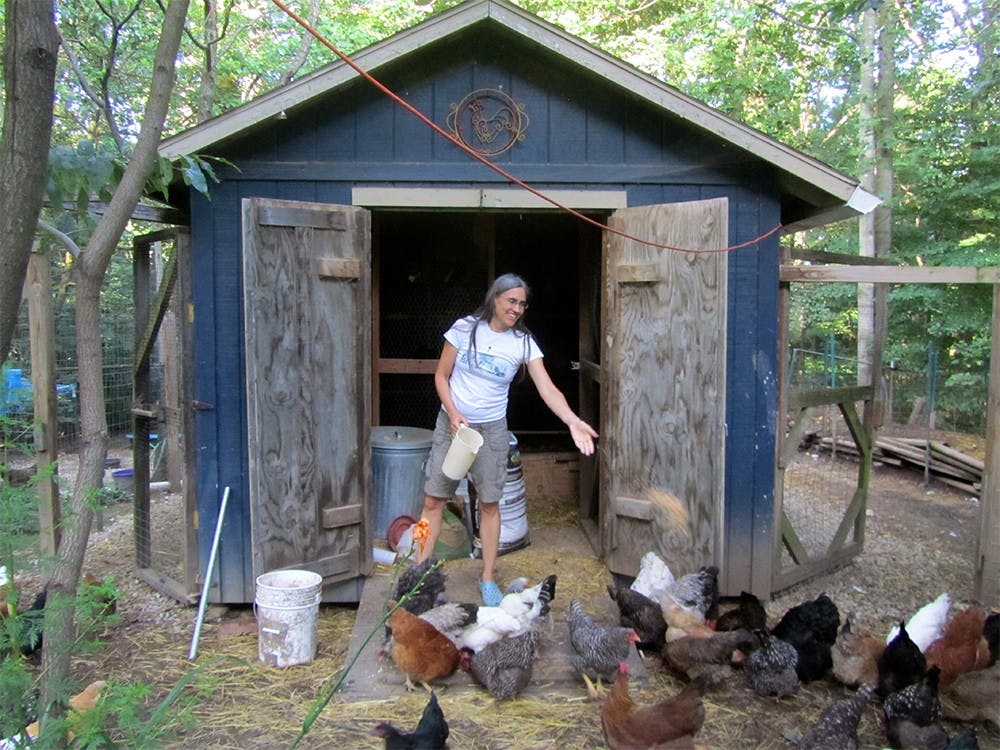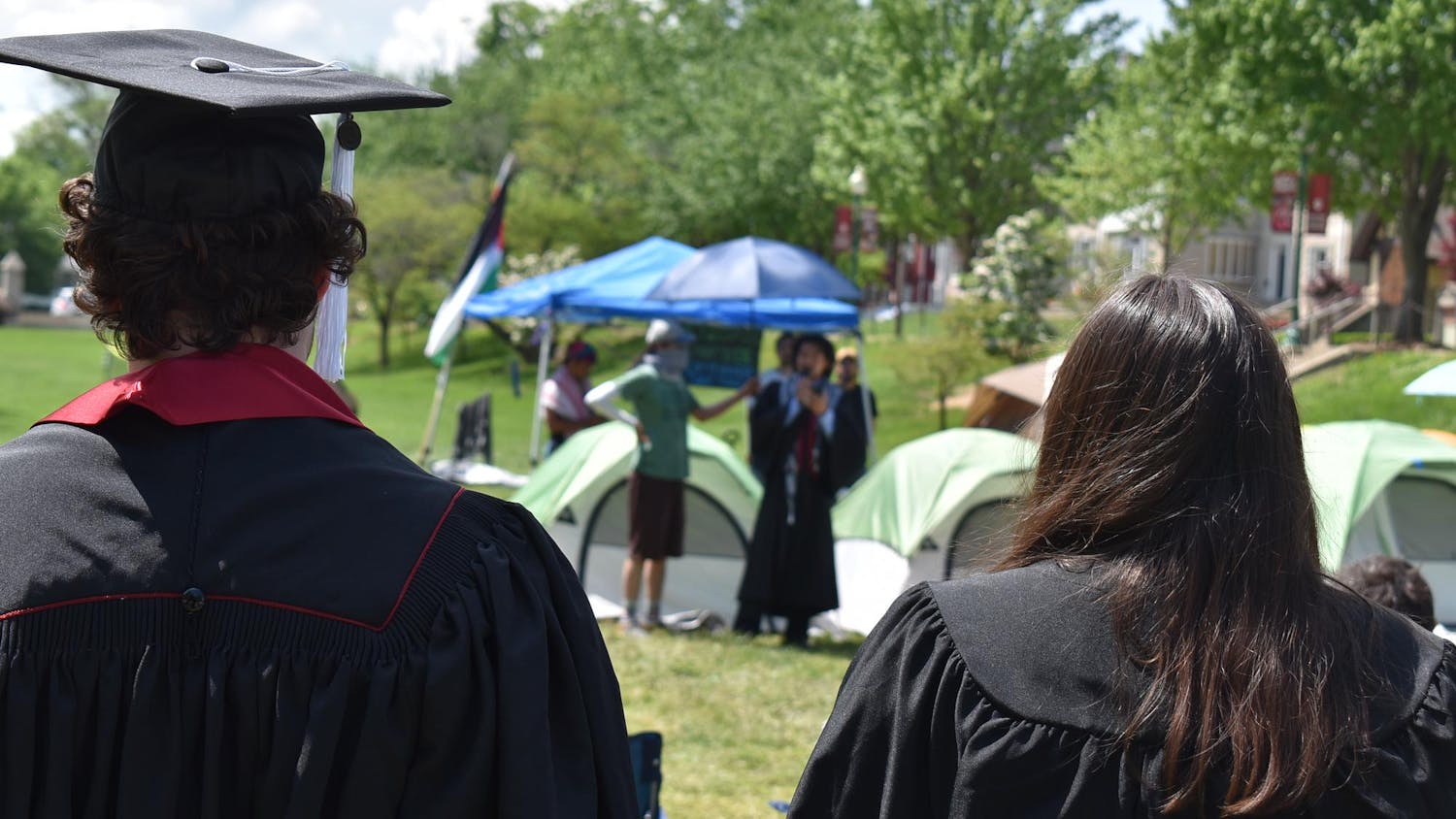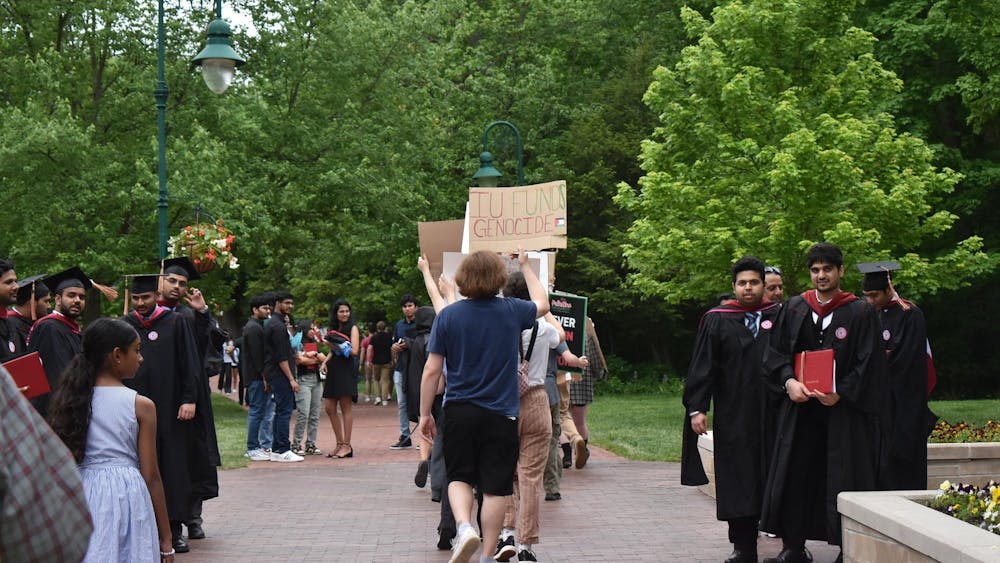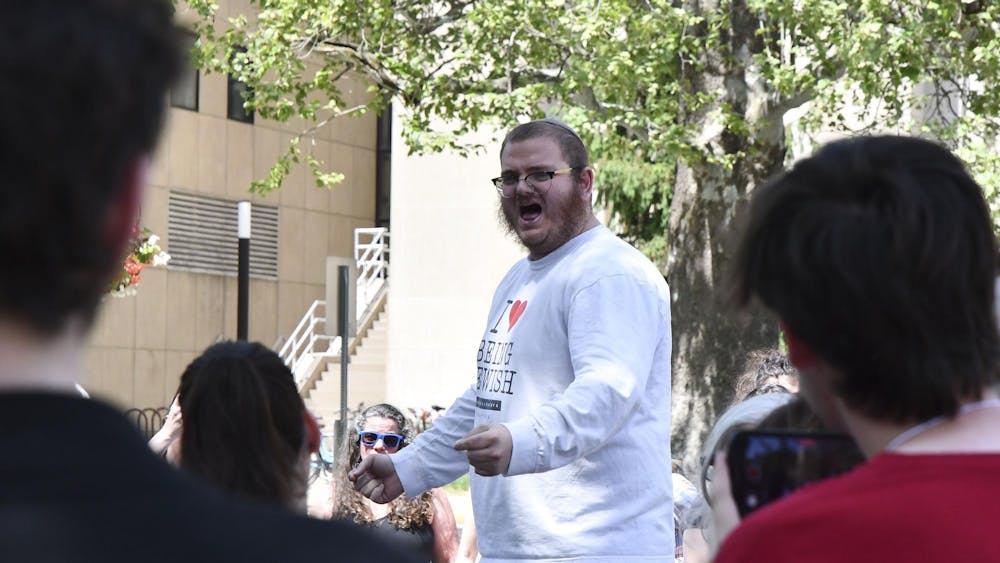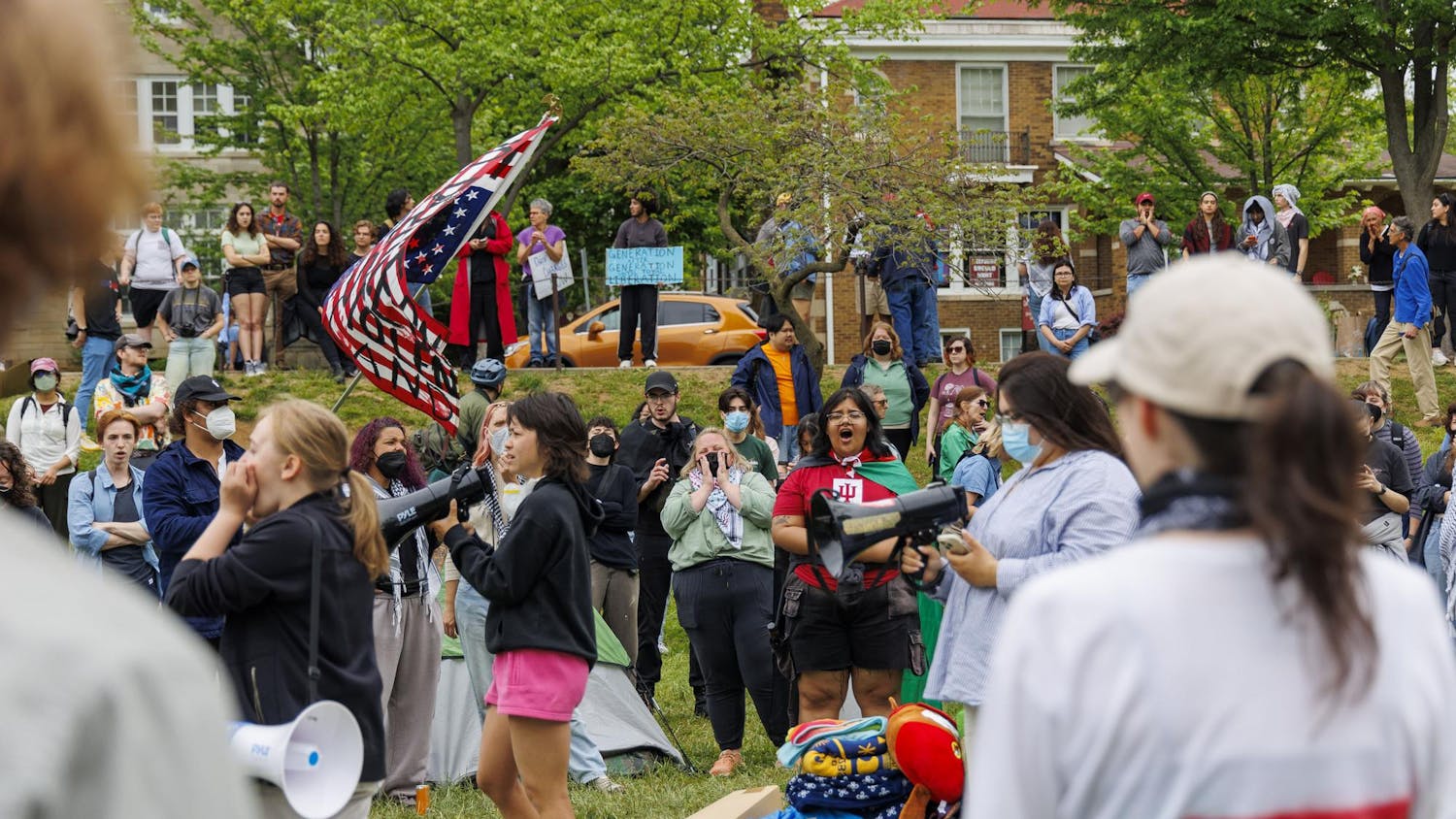Aardwolf, African black crake, Agouti.
Every animal she came across was added to the organized list scrawled out in her third-grader handwriting.
Baleen whale, Banded mongoose, Barking gecko.
“I don’t quite understand the logic now, but I think, in my eight-year-old brain, I had this idea that if I wrote down every animal in the world’s name, they would somehow be okay,” James said. “It seems silly now, but I wanted to protect them or keep them.”
James, who is now a career coach and instructor at the School of Public and Environmental Affairs, grew up next to a forest in New Albany, Indiana. When she wasn’t poring over her encyclopedia, she was outdoors.
“I really just lived and breathed the playground of the woods,” she said. “I felt very connected to all of the creatures.”
During the summers, crawdads swam in her inflatable Barbie pool, and her parents helped her transform the frame of an old couch into a home for her 14 turtles.
Her childhood passion for wildlife is one of the main reasons why James said she is now horrified to see the toll humans have taken on the environment.
She has always done little things to help. She attended a protest against the Keystone XL Pipeline, she’s a vegan and she even started her own organic farm.
“We have a rainwater collector and chickens, and we make our own soil from compost,” James said of her life at Blue Farm, a beautiful blue house nestled into the backwoods of Bloomington. Here, sunflowers and sweet annie spill from flowerbeds. Blackberry bushes bend over, heavy with giant berries. “I get to protect at least a little tiny corner of the world, so that’s been really cool, but it hasn’t felt like quite enough.”
In order to take her conservationism to the next level, James decided to apply for the Climate Reality Leadership Corps training program. The project, which was founded by former Vice President Al Gore, is dedicated to starting immediate and necessary action to fight the climate crisis at every societal level.
Each year, more than 400 people from all walks of life gather in a different city around the world to learn how to communicate the urgency of the situation, engage audiences and inspire people to take action.
There is no cost to attend, and two meals are provided each of the three days of training. All participants have to do is get to the designated city and find a place to stay. The next program will be held in Miami Beach, Florida.
James attended training in Iowa in May 2015. She said Gore was very involved throughout the entire process. He stressed the importance of grassroots efforts and taught the attendees how to tell their stories, like the one of James and her couch frame full of turtles.
All attendees are required to complete 10 acts of climate change leadership in the year after their training. James started her acts Wednesday by speaking at the local Green Drinks meeting.
James learned it’s important, during these leadership acts, to never sink too low into despair.
For her, this is the difficult part.
She’s an optimistic person, constantly smiling, laughing and dishing out compliments. But when she thinks of the problems facing the world, she quickly becomes overwhelmed.
“If we lose all of the slugs and snails, it’s just, it looks so bad, the sixth mass extinction,” she said. “And the fresh water, with fracking. And the snow.”
There might still be a chance, she said. If drastic changes are made, if everyone becomes a vegan, if we stop using all fossil fuels, if people start to educate themselves, we just might be able to save the planet.
James plans to keep fighting for nature, but if the movement doesn’t gain momentum and the necessary changes aren’t made, she said she found a way to come to terms with the consequences. She’s adopted a sort of doomsday perspective which, in a weird and twisted way, gives her comfort.
“We’ve been a blip,” she said. “We were this thing that happened, this organism, and we’re going to sink ourselves. We’re just a tiny little stripe in time, so the planet and nature will recover and go on. In fact, it will probably be better off.”

